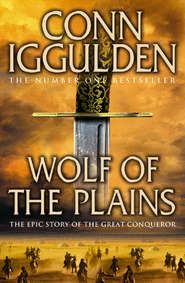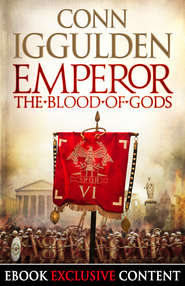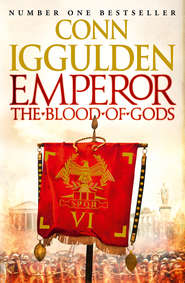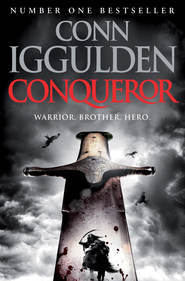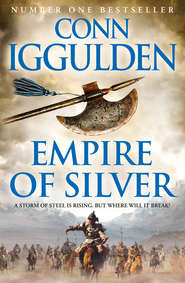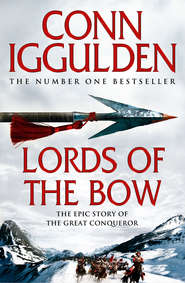По всем вопросам обращайтесь на: info@litportal.ru
(©) 2003-2024.
✖
The Double Dangerous Book for Boys
Настройки чтения
Размер шрифта
Высота строк
Поля
THE CORPS OF ROYAL ENGINEERS
Combat engineers or ‘Sappers’ provide support to the rest of the Army in war and peacetime. Duties include bomb disposal, bridge building, diving, communications and maintenance of armoured vehicles. The regiments are: 21st, 22nd, 23rd, 24th Commando, 26th, 32nd, 33rd, 35th, 36th, 39th and 42nd.
THE ROYAL CORPS OF SIGNALS
Formed in 1920, signals regiments deploy wherever the main army or special forces go. They are responsible for communications, digital security and electronic warfare. The signals regiments are: 1st, 2nd, 3rd, 10th, 14th, 15th, 16th, 18th, 21st, 22nd, 30th.
THE ROYAL LOGISTIC CORPS
The logistic corps provides ammunition, parts, rations, food, water and whatever else the rest of the army needs to function. The regiments are: 1st, 3rd and 4th Close Support Regiments; 6th and 7th Force Logistic Regiments; 9th Theatre Logistic Regiment; 10th Queen’s Own Gurkha Logistic Regiment; 11th Explosive Ordnance Disposal Regiment; 13th Air Assault Regiment; 17th Port and Maritime Regiment; 27th, 29th Regiments. They use heavy transport vehicles like the Mastiff.
ARMY AIR CORPS
Combat air support is provided by helicopters and fixed-wing planes. The regiments are 1st, 3rd, 4th and 5th, and they use Apache helicopters as well as the Lynx.
THE CORPS OF ROYAL ELECTRICAL AND MECHANICAL ENGINEERS
Six battalions. They maintain all equipment, including tanks and helicopters. Motto: ARTE ET MARTE – ‘By skill and fighting’.
ROYAL ARMY MEDICAL CORPS
Six regiments. Formed in 1898. Non-combatant, though they may use their weapons in self-defence. Provides vital surgery for the wounded. Maintains the health of the rest of the army. Regiments are: 1st, 2nd, 3rd, 4th, 5th, 16th. There are also three field hospitals: 22nd, 33rd and 34th.
There are a number of other corps and services in the Army, as might be expected to administer so many, often far from home and under extreme conditions. These are: Queen Alexandra’s Royal Nursing Corps (nursing), Adjutant General’s Corps (administration), Intelligence Corps (intelligence), Royal Army Veterinary Corps (animals, mostly dogs), Small Arms School Corps (small arms training), Royal Army Dental Corps, Royal Military Police, Military Bands and the Royal Army Physical Training Corps – Motto: MENS SANA IN CORPORE SANO – ‘A healthy mind in a healthy body’.
Finally, there is a Royal Gibraltar Regiment, defending the British Overseas Territory of Gibraltar. In Bermuda, the Royal Bermuda Regiment defends the British Overseas Territory of Bermuda. This is not part of the British Army but can request training and operational support if needed. The Commander-in-Chief is the Bermudan Governor General.
Around another 30,000 soldiers can be counted in various reserves, such as the Scottish and North Irish Yeomanry, or the Royal Wessex Yeomanry, always available to be called up.
‘There is no beating these troops, in spite of their generals. I always thought them bad soldiers, now I am sure of it. I turned their right, pierced their centre, broke them everywhere; the day was mine, and yet they did not know it and would not run.’
French Marshal Soult, commenting on the British infantry as he retreated in 1811
RANKS IN THE BRITISH ARMY
‘OTHER’ OR NON-COMMISSIONED RANKS
PRIVATE – Trooper, Gunner, Sapper, Kingsman etc., depending on regiment.
LANCE CORPORAL – in charge of four soldiers.
CORPORAL – in charge of more soldiers and equipment.
SERGEANT – senior role, often second in command of thirty soldiers.
STAFF OR COLOUR SERGEANT – senior role, managing 120 soldiers.
WARRANT OFFICER CLASS 2 (Company Sergeant Major) – senior adviser to the Major in command of the unit.
WARRANT OFFICER CLASS 1 (Regimental Sergeant Major) – senior adviser to the Commanding Officer, responsible for up to 650 men.
OFFICER OR COMMISSIONED RANKS
OFFICER CADET – rank held while training at Sandhurst.
SECOND LIEUTENANT – first rank on being commissioned.
LIEUTENANT – in command of around thirty soldiers.
CAPTAIN – second in command of 120, equivalent to Roman optio.
MAJOR – in command of 120, equivalent to Roman centurion.
LIEUTENANT COLONEL – in command of 650.
COLONEL – staff rather than field rank.
BRIGADIER – commands a brigade.
MAJOR GENERAL – commands a division, and Sandhurst Military Academy.
LIEUTENANT GENERAL – very senior role, commands a corps.
GENERAL – highest rank available to serving officers.
FIELD MARSHAL – highest honorary rank.
MAKING A BOARD GAME (#ulink_098b83fa-6d13-54c4-b1c8-764b8e4e6b25)
Left and right. Courtesy of The Advertising Archives
Many of us have looked at Monopoly or Cluedo and thought, really, how hard can it be to make something like that? The answer is a little like chess: easy to begin but hard to master. Anyone can make a board game. The question is, will you be able to persuade your family or friends to learn the rules and actually play it? Still, that’s exactly how Scrabble and Trivial Pursuit started. Those remain hugely popular today. In a world of smartphones and first-person shooter games, there still seems to be a place for a small group to sit around and compete with one another for fun. In this chapter, we aren’t going to try and invent a new form of chess, go or draughts. We’ll concentrate on classic board games, like The Game of Life, Sorry! or Risk.
THE CONCEPT
The basic concept should be simple – even Snakes and Ladders has its fans, and that has no structure or tactics whatsoever. As it is almost two thousand years old, though, that makes a bit of sense. They hadn’t invented Chance cards then.
Snakes and Ladders has the aim of reaching a particular square, while in Monopoly players go round and round the board as difficulty increases, until someone runs out of money. We think the second form is a better model – no ‘goal’ square, but gaining money from a finite pot. People like collecting wads of cash.
Pick a concept your family or friends might possibly enjoy. This is important: as soon as you decide the game is called ‘Ninja Castle’, ideas will pop up. Can you win Ninja equipment? Is the basic idea to climb through the levels? Will you need a fighting system when players encounter guards? Are you an assassin, or is that too dark for a board game – and so on. If you call it, say, Poker Master, you’ll have to work out how to incorporate poker hands into a board game. Will there be betting? Will someone have to be the dealer?
You may have a lifelong interest in orchids, but will your hobby make a good theme for a board game? Probably not – though now we’re wondering if an orchid hunt through a jungle board might just be the best idea we’ve ever had.
MONEY
Consider the use of money. In Monopoly, money is used to purchase tokens (houses and hotels) that make life harder for the other players. Your game ‘Orchid Adventure’ (all right, we’re just running with it now) might involve the purchase of rare flower bulbs. You could then win breeding tokens and cross-breed them to form rarer and more expensive orchids, with the aim of producing truly rare specimens that would allow you to finally build your own glasshouse in Orchid Manor.
However, as fun as that is beginning to sound, you also need a way to disadvantage the other players. In our example, you might be able to purchase ‘Root Rot’ cards or, better still, tokens, to be left on the board like a booby-trap, or deployed against another player at a crucial moment. (That attack might be limited further by the use of a six-sided die: roll 1 or 2, the attack succeeds; 3 or 4, no result; 5 or 6, rebounds on you. That is a 1/3 or 33.3% chance of success. Learn percentages – they’re really useful for this sort of thing.)






